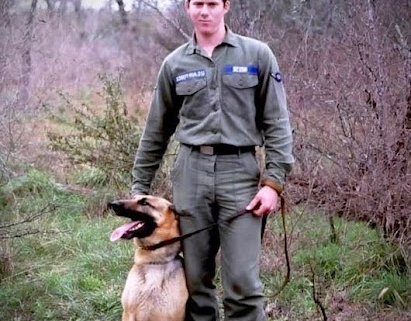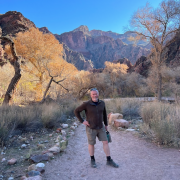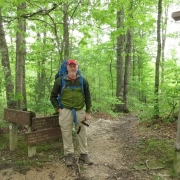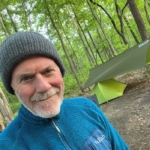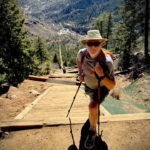It’s All About the Engine, Part 2 | Healthy Aging Series: S10 E2
So, You Can’t Find Your Keys? Forget About it!
It was 1978. I was a sergeant in the Air Force, stationed at Osan, Airbase Korea. I was a dog handler, which means I was assigned a patrol dog, a German Shepherd named Static. Periodically, we engage in joint training exercises with the Republic of Korea military. This involved working 12 hours on and 12 hours off for 10 days. I would work, get off and relax for four hours, sleep for eight hours, and get up and work 12 more hours. Then repeat that for 10 days. It’s a little exhausting. On the ninth day, I arrived at the kennel and was approached by one of my team members, Sergeant Gray, and he asked, “Where’s Static?“
“What do you mean?” I responded. “He’s not in his kennel,” he replied. And, like a punch in the gut, I realize that I had forgotten and left him for 12 hours at the armory, in a kennel crate without water and without food. Due to my physical and mental exhaustion, I had forgotten to take him back to the main kennel. I had a complete mental block. I was 22 years old.
Static was fine. I got a letter of reprimand. Fair enough. But it goes to show, your brain can let you down from time to time, even when you’re 22.
Fast-forward 45 Years
That was then. Now, 45 years later, things are a little different.
For instance, I can’t recall people’s names as quickly. Not the names of my friends and family, but actors and celebrities. Not the big ones like Biden, Trump, John Wayne, Bill Murray, and so on. Usually, if I wait a minute or two, they pop out of my long-term memory. I notice people younger than me that struggle with word and name recall. I also struggle with remembering what I’m supposed to get at the grocery store. I have a mental list, and literally five minutes later I’ve forgotten something.
This blog is about healthy aging, and this season is focusing on your aging brain. There is good news and some bad news about the aging brain, but I want to focus primarily on the good news.
Potential Land Mines as You Age
First, I want to give a note of clarification. There are potential land mines that will affect your aging brain. I’m going to write about Dementia, and more particularly, about Alzheimer’s Disorder. It will rob you and your family of the last 10 or 12 years of your life. They don’t know what causes it, and it is incurable. Ditto to most other forms of dementia. Strokes are one of the leading causes of death in the aging population. I’ll be writing about it towards the end of this season. It can be devastating as well, but there are preventive measures that you can take now to avoid its devastating effect. Vascular Dementia is devastating as well, but guess what? It’s 80% preventable. Brain injuries due to falls are another cause for alarm as we age. I am writing episodes on aging and alcohol use, and there’s no question that using alcohol when you are frail or unstable creates risk factors for falls, and therefore, the risk of brain injury. There are other neurological disorders that affect our brain and if you experience one of these disorders or the ones I’ve just mentioned, they are going to affect the health of your brain.
If you’re fortunate to avoid one of these land mines, then there is good news for your aging brain.
First, I want to give you the most important take away from this blog: Despite the fact that you are losing gray and white matter (Sorry, I forgot to tell you that your brain is getting smaller as you age), this loss will have very little impact on your ability to become smarter and wiser as you age. Research points out that we have two types of intelligence: Crystallized and Fluid. I’ll talk about Fluid Intelligence a little later.
The Good News
Crystallized intelligence is the stored knowledge that you have accumulated throughout your lifetime. It’s the information you’ve gathered through your experiences and through learning skills, trades, reading, professional journals, memorizing, podcast, blogs like this, and to the many, many ways we take in information. All of this information, or at least most of it is going to be at your disposal, to use, to grow, and become wise and skilled at living. Crystallized intelligence usually peaks at about 70 years of age but consider the fact that Fluid Intelligence (I’ll tell you about is in a sec) usually peaks at 35 or 40 years old. You are becoming and will continue to be a storehouse of knowledge and wisdom for yourself, your family, and your friends. Because you are aging, you are becoming more, not less, valuable to the world and the community. Think of it!
Getting older will make you smarter and wiser.
Getting older will help you avoid the mistakes of your youth.
Getting older will make relationships easier and more meaningful.
Getting older will make life more meaningful.
Getting older will help you be happier.
All of this because Crystallized Intelligence remains mostly intact! What are you going to do with all of that information, knowledge, and experience that you’ve acquired in your lifetime? Share. Teach. Mentor. Write. Create. Work. Dance. Explore. Grow. Make peace. Love.
You can be an expert at ______________(fill in the blank).
I’m an expert hiker and backpacker. I’ve been doing it for over 25 years. I know all the gear. I have maps, lots of maps. I can orienteer, which means getting from point A to point B with a map and a compass. I teach new backpackers to begin making a mental list of all of the things that you should’ve brought with you and all the things you should’ve left home during your backpack trips. In five years, you’ll be an expert.
I’m an expert in fitness and nutrition. In my 50s, I was tired of listening to what others said I should be eating and how I should be training. So, I earned several certifications in fitness and nutrition. I know what to eat to be fit. I know how to train for my backpacking trips. Lots of hill-repeats with 45 pounds on my back.
I would like to think I’m an expert psychotherapist. I’ve spent 30 years improving my skills and I’ve spent the past five years studying the writings of Dr. Carl Jung and consider myself a Depth Psychotherapist. I spend my professional time guiding the two agencies that I co-own with my wife, and helping clients figure out why they are the way they are, and how to grow. And I’m not finished learning and growing myself. I have a treasure house to share! That’s the good news!
The Bad News-Fluid Intelligence
The bad news, and it’s not awful news and not even troubling news, it’s mostly just irritating news. Your Fluid Intelligence is declining. Fluid Intelligence has to do with reasoning, solving novel problems, processing speed, and executive functioning, which involves organizing, planning, focusing, and all those frontal lobe tasks. As you age, you’re going to have problems with short-term memory and recall, mostly abstract words, and names. Honestly that’s it. You’ll start to look a little bit like you’ve got ADHD, and you’ll need to make a list for the grocery store.
There are some simple techniques for improving your memory that I will share in a later episode this season. There are fitness and nutritional things you can do, which I will also share in upcoming episodes. I’ve shared the simple statement, “What’s good for the heart is good for the brain.”
But for now, relax. If you’re able to escape the disease-land mines, then you’re going to be fine as you grow old. I’m smarter and wiser than I was at 46 and I’ll be smarter at 76 and 86. There’s so much adventure to look forward to.
Recent Studies on Aging and Memory
I want to share some studies that have been done that show the difference in memory with older adults and young people. Those studies have been scrutinized a little bit because they do not take into consideration the circadian rhythms of older adults and younger adults. Younger adults tend to do better on cognitive activities in the afternoon, whereas older adults tend to do poorly in the afternoon. Again, this is due to circadian rhythms. Those studies that take into consideration the time of day the studies are performed on people’s cognitive abilities, reflect a much less diminished cognitive ability as you age. Yes, there are declines in accessing your memory, especially short-term memory as you age, but it is not nearly as serious as what was first considered a serious disparity.
Our Own Ageism
We don’t need studies to tell us that our brains aren’t as fast as they were when we were younger. But think about all of the resources you have as you age, based on all of the learning you’ve done throughout your lifetime. I think it’s a wonderful thought that as you age and maybe retire, you can still use your skill set and your experiences to help people. I’m going to be sharing a few episodes and upcoming seasons about ageism.
Ageism is alive and well in most cultures in this world, but I think it is most prevalent within the aging population. I think we suffer from a form of ageism when we begin to see ourselves as useless and see ourselves as not valuable to our friends, our family, and our community.
Fight the urge to see life as over when you turn 65!

